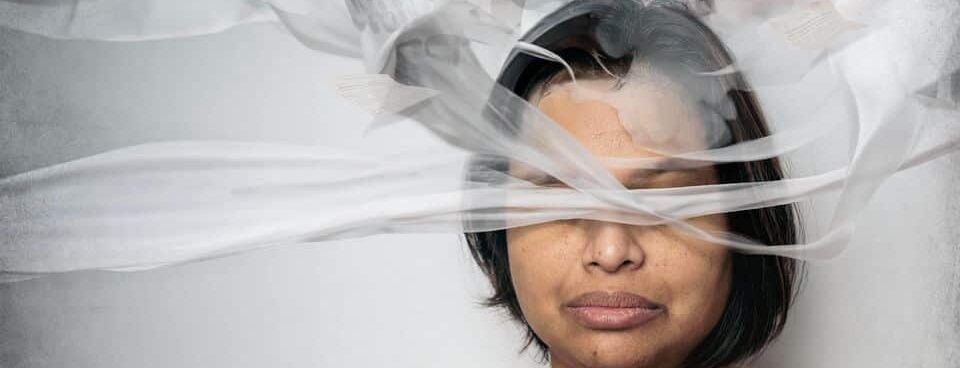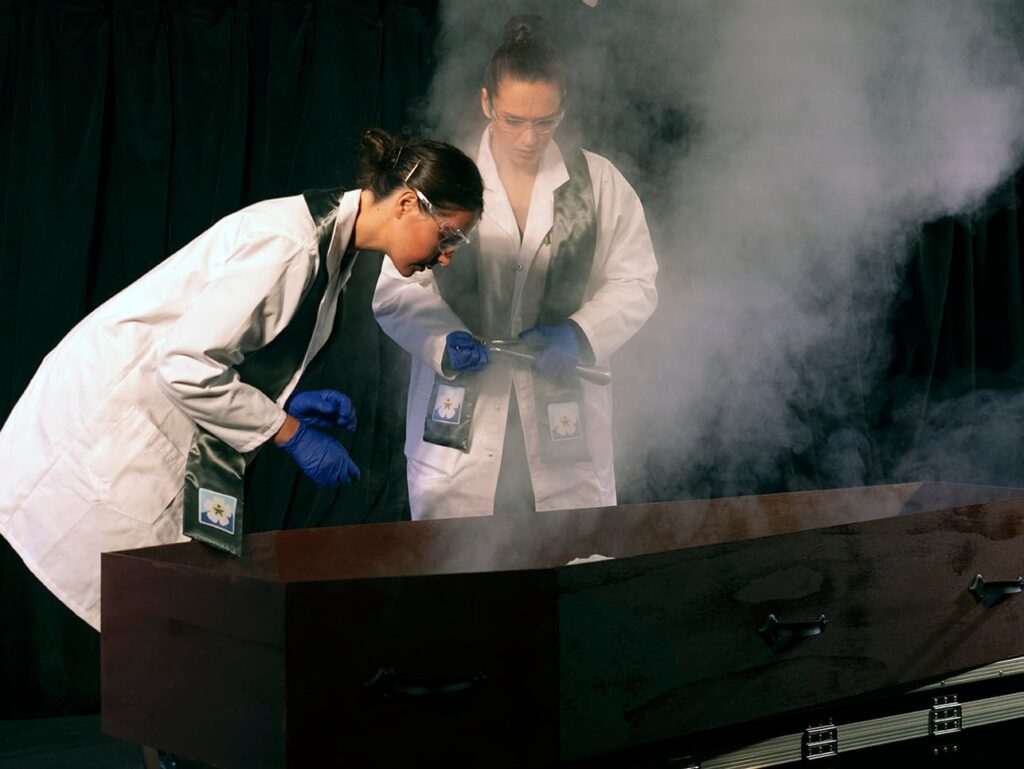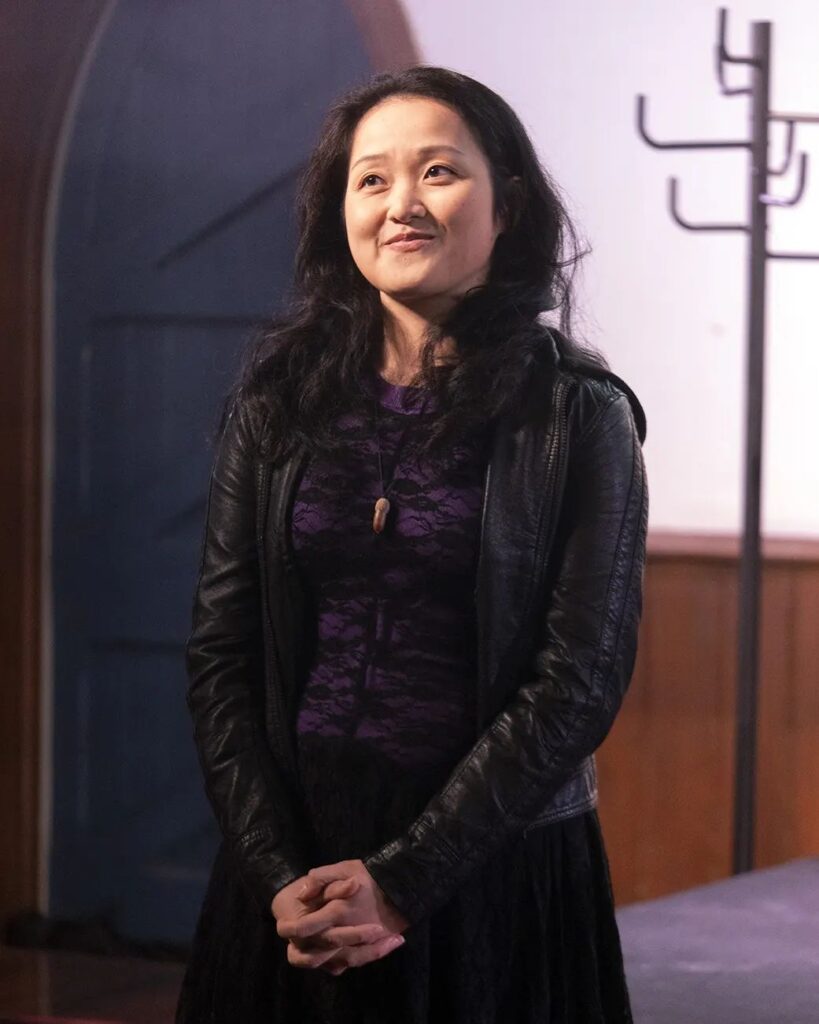Flick’s “SLUTNIK 2: Planet of the Incels” was a dazzling space age adventure.
It is the extravagant and anticipated continuation of the SLUTNIK™ franchise, following the success of its fabulous predecessor, SLUTNIK™ 1. The enthusiastic opening night audience for SLUTNIK™ 2, comprised of numerous fans of the first installment, is a testament to its popularity and widespread appeal.
For those unfamiliar with the backstory, SLUTNIK™ 1 chronicles the journey of a renowned group of lesbian space cannibals, accompanied by their trusty robot MOTHERBOARD, who departed Earth a century ago in search of liberation from patriarchal oppression.
The plot centres on Andromeda (Sara Reed) and MOTHERBOARD (Matilda Gibbs), rediscovering and reliving the secreted data of when the “sluts” had been compelled to make an emergency landing of their malfunctioning spacecraft on an unfamiliar planet. To their dismay, they discover the very thing they sought to escape from.
However, these men are not ordinary men, but rather, they are Incels who have been incarcerated within a dome by supposedly wicked lesbians. In addition to their desire for compliant women, these Incels also seek to escape, and believe in exploiting the visitors to achieve their sinister goals.
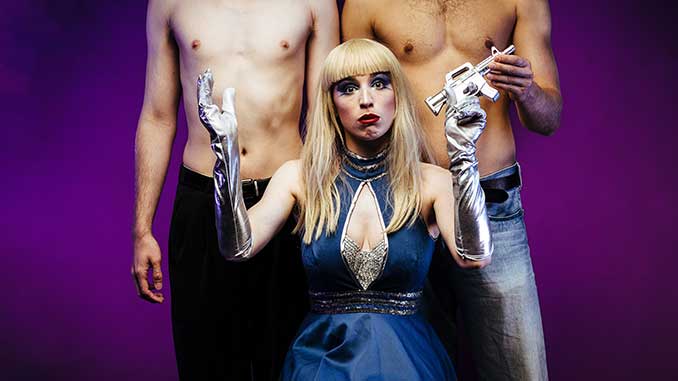
Matilda Gibbs is an exceptional MOTHERBOARD, and such a highlight of the show. Sara Reed portrays the conflicted Andromeda. She is truly enjoyable in her portrayal of an earnest explorer, being confronted with an entirely new experience – the Incel Men. The men, namely Ben Ashby, Ethan Morse, Michael Cooper, William Strom, and Benji Smith, are all recognizable as man-boy types and together, create a comical and perplexing chorus.
The Incels are easily ridiculed, yet they manage to captivate audiences with their provocative dance numbers, choreographed by Mia Tuco. Their interactions, and manipulations form the crux of the show, providing a platform to explore themes such as power, masculinity, and autonomy.
The Incels’ dialogue is also used in matrix-style set dressing, which creates interesting contrast with the flamboyant flourishes of MOTHERBOARD’s retelling. Read: in real life, toxic masculinity forces men such as these characters to present themselves in bland uniformity, but Costume Designer Emily Busch has made them into glittering cowboys.
The language they use was apparently taken verbatim from Incel websites, documentaries, etc. Jon, played by Benji Smith, is a sinister, charismatic leader of the Incels, exuding an air of authority and menace. “Nice guy” Elliot, portrayed by Ben Ashby, attempts to win over Andromeda with his charm. The other three men, played by Michael Cooper, William Strom and Ethan Morse, while initially rude and boorish, ultimately prove to be more redeemable, revealing deeper layers of humanity, despite being so unsympathetic.
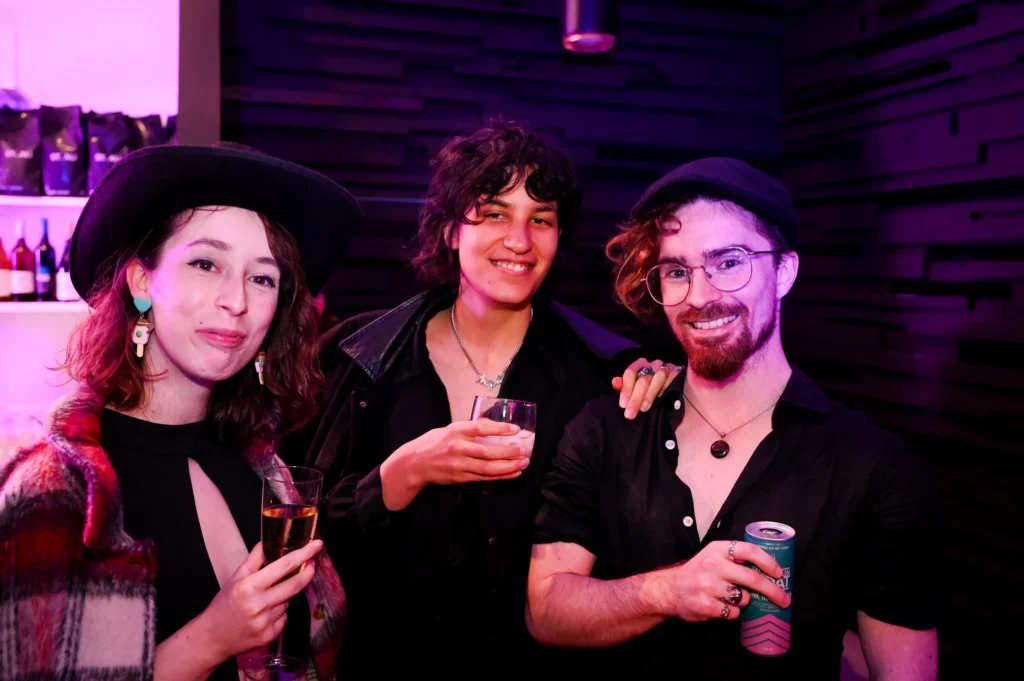
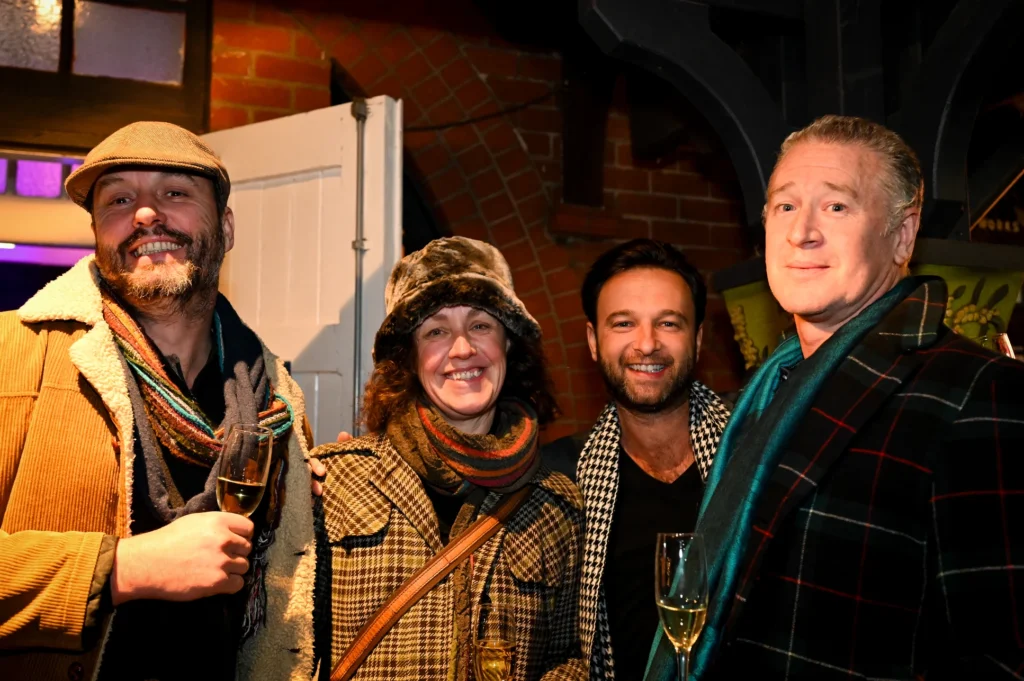
Juxtaposed to the incels, Motherboard and Andromeda’s exchanges are a fascinating exploration of what it means to retell truthful and challenging stories – especially the burden of lived experience and trauma.
I applaud Flick and the whole production for their camp, sci-fi, musical spectacular. The story was a stunning and tactful interrogation of the dumpster-fire world we navigate today. Contemplating the end of the show, I walked away fired up by the pathos and soothed by the glamourous flourishes in sound and design.
I look forward to seeing SLUTNIK 3!”, but in the meantime, be sure to see this show before it closes on 16th September at Theatre Works.

